Today marks 100 years since the birth of Mikis Theodorakis – composer, political activist, and living embodiment of modern Greek identity through music.
Revered not only for his genius compositions like Axion Esti and Zorba the Greek, Theodorakis was also a man of the people, whose music and political beliefs deeply impacted generations around the world.
To honour his centenary, The Greek Herald spoke with three Greek Australians who met him: renowned Australian conductor George Ellis, Chair of the Greek Festival of Sydney Nia Karteris, and President of the Greek Orthodox Community of NSW (GOCNSW) Harry Danalis.
Each shared personal, powerful memories of their encounters with the great composer.
George Ellis: ‘It was like meeting Mozart’

For George Ellis, meeting Theodorakis in December 2016 was the culmination of a lifelong musical admiration. Thanks to the Greek Festival of Sydney and singer Dimitris Basis, Ellis travelled to Athens to meet the maestro at his home, a modest apartment overlooking the Acropolis.
“I rang the doorbell right on 6pm… the lift door opened, and as soon as it did, there was the great man sitting there, just looking over and smiling. I remember having trouble breathing for a second… I was so starstruck,” Ellis recalls.
“It was like meeting Mozart or Beethoven or Leonard Bernstein, in terms of a composer and conductor. He was Greece’s greatest.”
Initially scheduled for just 30 minutes, their conversation extended for over three hours. Theodorakis watched Ellis’ YouTube performance of Axion Esti and gave a live critique.
“He would say things like, ‘This is a good tempo,’ or, ‘Oh, I take it a little bit slower than you, but that’s okay.’ It was surreal,” Ellis says.
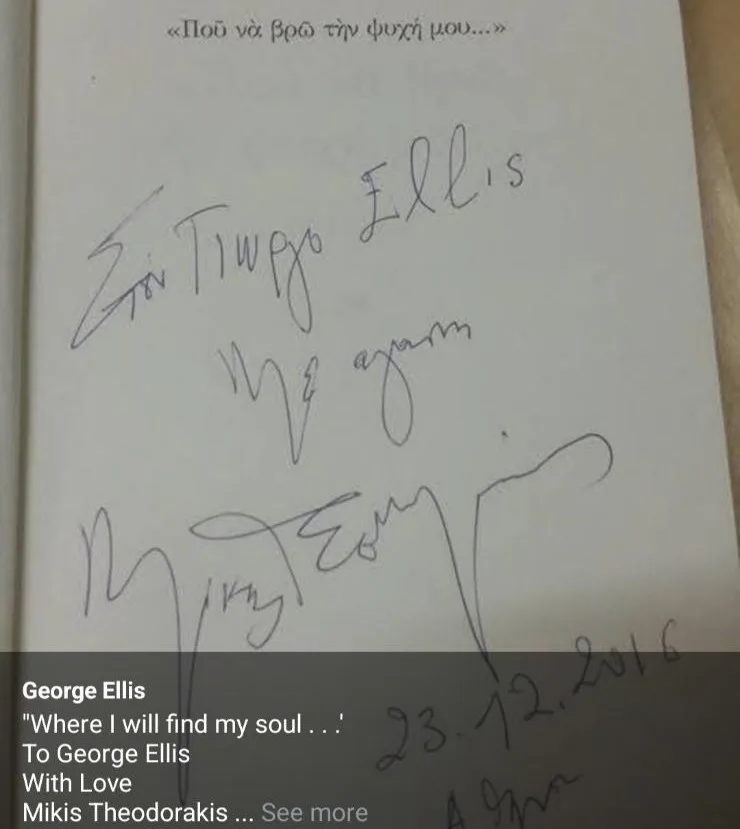
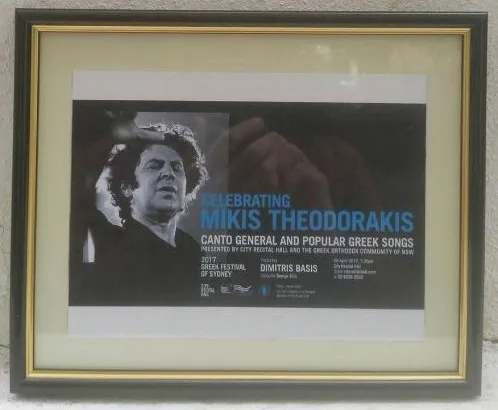
The encounter didn’t end there. Theodorakis pulled out the score for Canto General, which Ellis was scheduled to conduct the following year.
“He gave me advice on the hardest parts and even gave me his blessing by putting his hand on the top of my head,” Ellis says.
“It was the most beautiful conversation… To this day, it has informed the way that I conduct, especially his music. I wouldn’t have traded it for the world.”
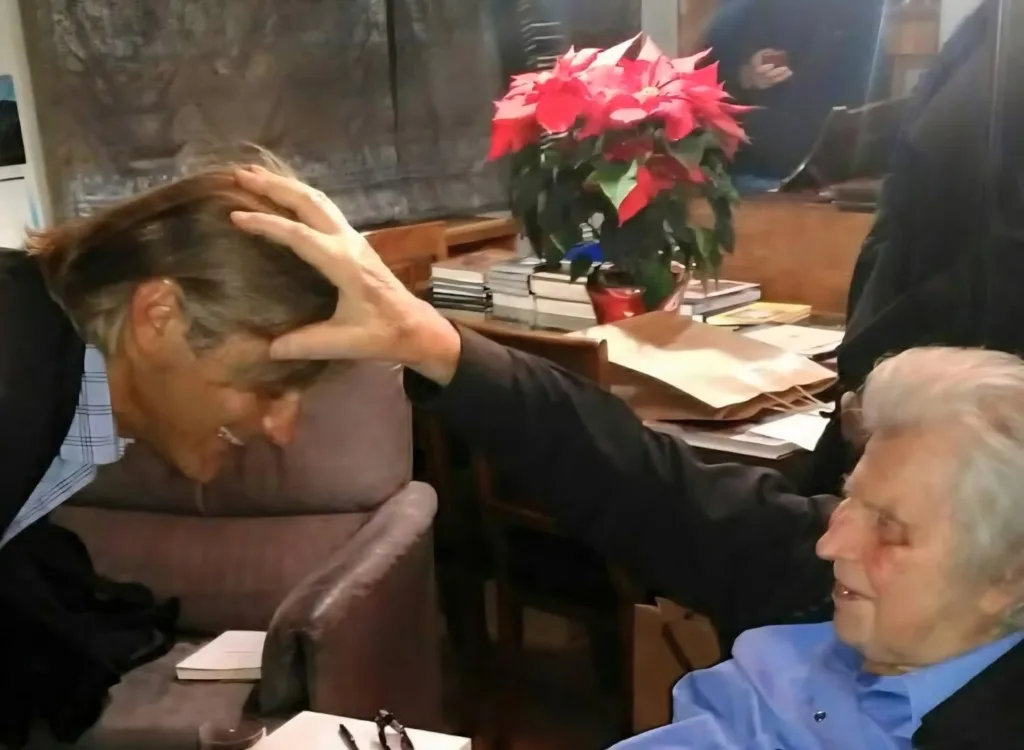
Nia Karteris: ‘He made us feel like equals’
Chair of the Greek Festival of Sydney, Nia Karteris, met Theodorakis three times – in 2006, 2016, and 2018 – often alongside delegations from the GOCNSW including Harry Danalis (President), the late Michael Tsilimos and Stanley Koulouris. Each visit left an indelible impression.
“Walking in and seeing this huge, strong, tall person in front of you… it was just a feeling of awe. But he made us feel so comfortable, like we were equals. Like we all had a purpose in society,” she recalls.
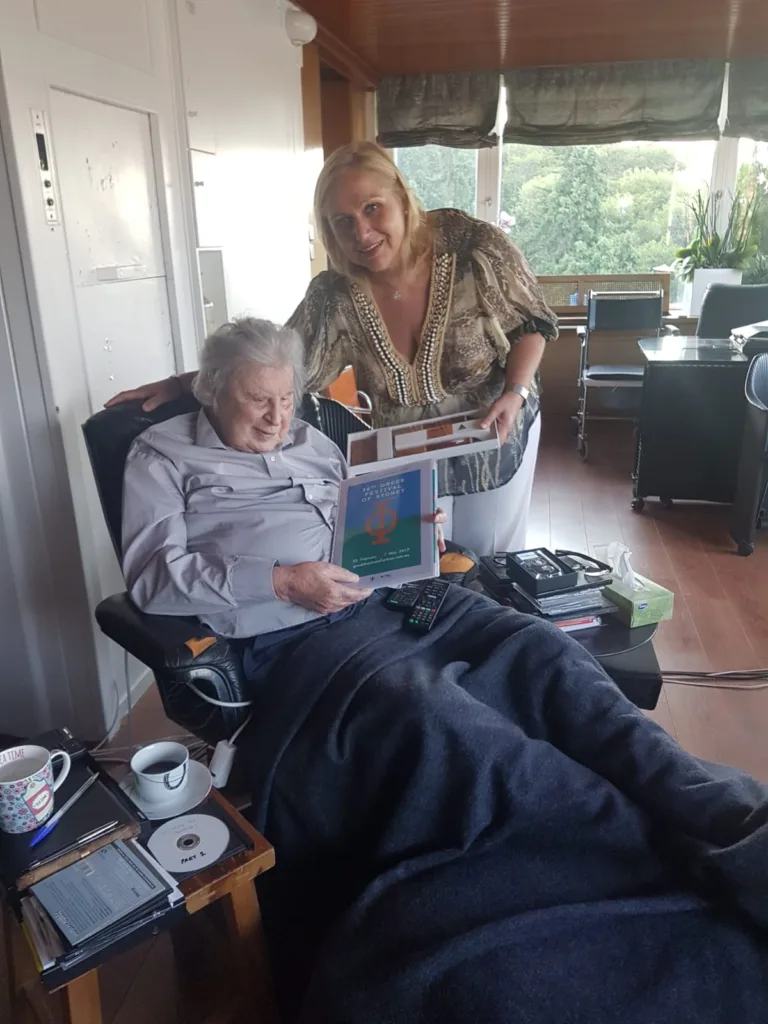
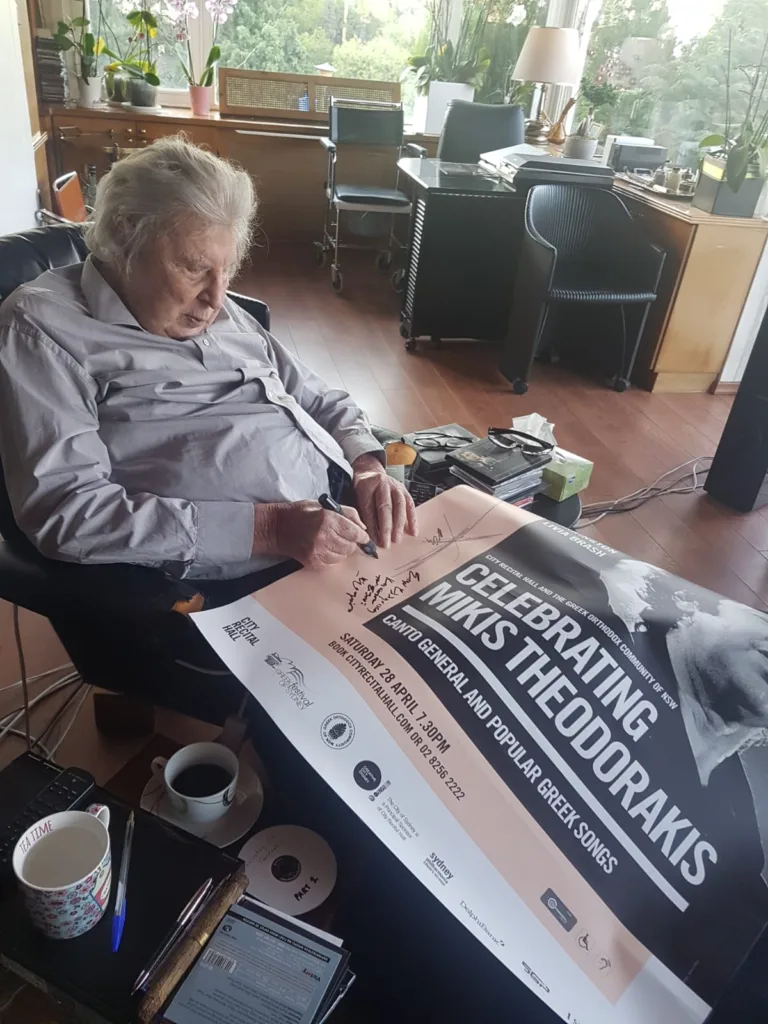
Their first meeting was meant to last 30 minutes but stretched to three hours. “He spoke about his life during the junta, being a communist, his time in exile, his imprisonment, his music, and his politics – he never shied away from that.”
What struck Karteris most was how much Theodorakis cared about Greece’s diaspora. “He wanted to know how Greek was being taught here, how young people connected with Greek music, and he was genuinely interested in our challenges.”
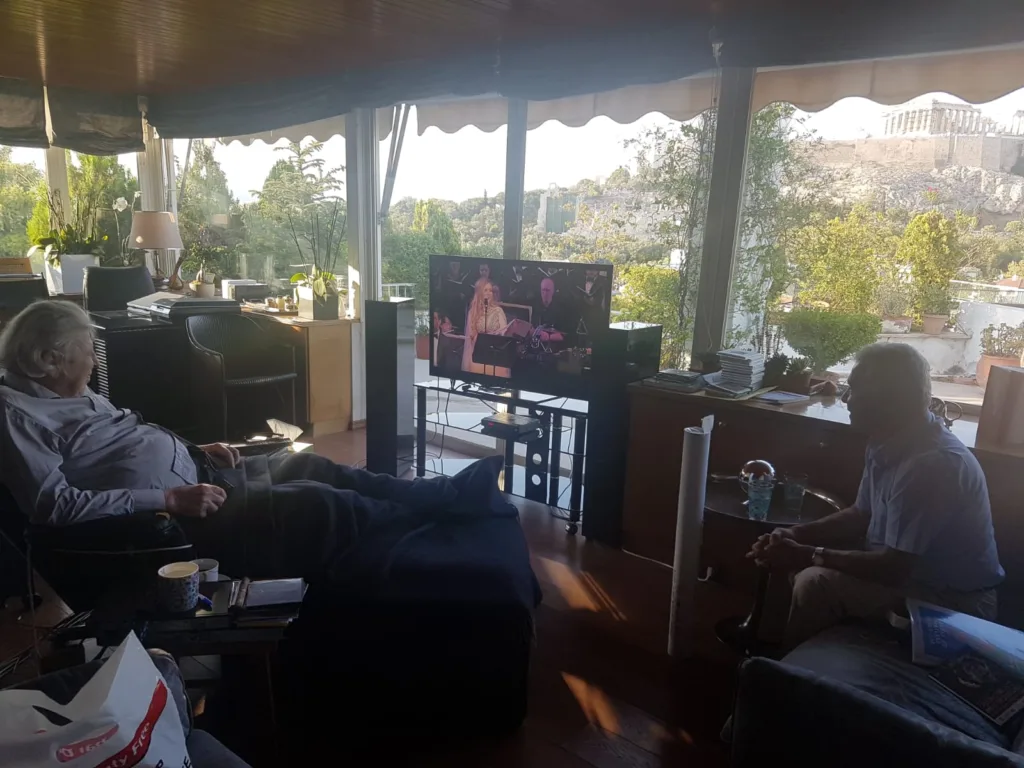
After hearing about the Festival’s productions of Axion Esti and To Treno Fevgi stis Okto, he was visibly moved. “He said, ‘Be proud of what you are doing. Continue it.’ He even asked for copies of the music and gave us feedback. He didn’t use his status to intimidate – he listened.”
And he remembered her. “At the third visit, he addressed me as ‘Nia’. I say it now, and I’m moved. That was the pinnacle for me.”
Harry Danalis: ‘One of the highlights of my life’
Harry Danalis, President of the GOCNSW, met Theodorakis twice – once briefly after a concert in Australia in the early 1970s, and again in 2006, during a delegation visit to his Athens residence.
While the Australian encounter was short, the 2006 meeting went over time.
“He was not in the best of health at the time, but he ranged over the whole course of his life. It was an intimate, profound conversation,” Danalis shares.
“He spoke about his time in prison during the dictatorship, his political activism, and his music. He gave us insight into the motivations behind his work, and what he truly cared about. It wasn’t just a meet-and-greet – it was one of the highlights of my life.”

Danalis, a lifelong admirer of Theodorakis’ music, describes the meeting as “a dream come true.”
“He was a legend in his own lifetime. His music, in my opinion, will endure forever,” he says.
Legacy beyond borders
For all three, the legacy of Theodorakis extends beyond his music. It lies in his humility, his deep belief in justice and culture, and his rare ability to make every person feel seen.
Karteris puts it simply: “He could have said, ‘I don’t have the time.’ But instead, he welcomed us, made coffee, and gave us his blessing. That’s the kind of man he was.”
On this centenary, the memory of Theodorakis lives on not only in concert halls and national anthems, but also in quiet living rooms in Athens, on Sydney stages, and in the hearts of those fortunate enough to meet him.
